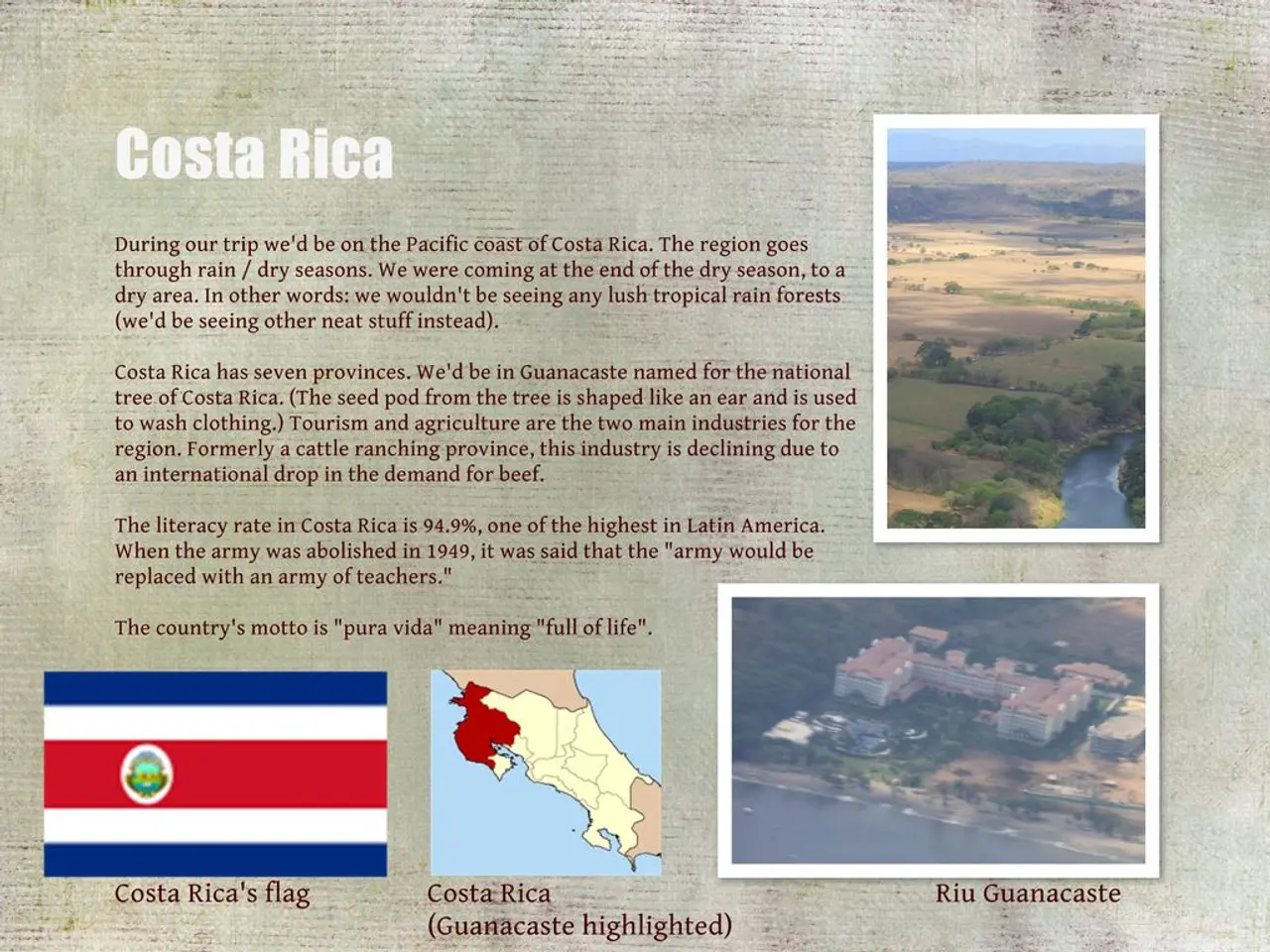Salvadoran President's Extended Tenure Possible Through Alterations to the Constitution, Remaining in Office for Potentially Decades
El Salvador's Legislative Assembly approved significant constitutional changes on Thursday, altering the political landscape of the country. The reforms, which include extending presidential terms from five to six years and abolishing term limits, have raised concerns about the potential consolidation of power and the erosion of democracy[1][2][3].
Key consequences of these changes include:
- Indefinite Re-election and Power Consolidation: The amendments enable President Nayib Bukele, who was first elected in 2019, to seek unlimited consecutive terms. This move could potentially allow Bukele to remain in power for the rest of his natural life[1][3][4].
- Extended Term Length: Increasing the presidential term from five to six years lengthens executive tenure per election, reducing electoral accountability frequency[1][3].
- Abolition of Runoff Elections: Removing the requirement for a second electoral round eliminates a democratic safeguard designed to ensure broader legitimacy for elected presidents[1].
Opposition lawmakers have condemned the changes as effectively ending democracy in El Salvador. The reforms occurred rapidly and with minimal debate, raising concerns about democratic backsliding amid limited public engagement[1].
In a separate development, El Salvador has been investing in bitcoin. Since December 19, 2021, the government has added at least 240 BTC to its holdings, despite reassurances to the International Monetary Fund that it would scale back its crypto project[5]. The government currently holds nearly $550 million of El Salvador's foreign exchange reserves in bitcoin, amounting to about 15% of the total[6].
These investments have been met with mixed reactions. While some, such as Elon Musk and Donald Trump, are reportedly excited about Bukele's potential for increased power, critics argue that the move could further destabilize the country's economy[7].
In 2019, Bukele's government signed a secret pact with gang leaders to dial back violence in the country, according to El Faro news outlet. This deal involved providing financial incentives, potentially raising questions about the legitimacy of Bukele's re-election in 2024, which occurred under dubious circumstances[8].
Bukele's New Ideas Party has also removed magistrates in the Supreme Court who had opposed the president[9]. Bukele met with Trump in the White House in April 2021[10].
These developments highlight the ongoing political and economic shifts in El Salvador under President Bukele's leadership, with the potential for significant implications for the country's future.
[1] https://www.reuters.com/world/americas/el-salvador-lawmakers-approve-constitutional-changes-extending-bukele-term-2023-03-23/ [2] https://www.bbc.com/news/world-latin-america-64585739 [3] https://www.aljazeera.com/news/2023/3/23/el-salvador-s-bukele-wins-support-for-constitutional-changes-to-extend-his-term [4] https://www.nytimes.com/2023/03/23/world/americas/el-salvador-bukele-constitution.html [5] https://www.reuters.com/technology/el-salvador-still-buying-bitcoin-despite-imf-warnings-2023-03-20/ [6] https://www.bloomberg.com/news/articles/2023-03-22/el-salvador-bukele-s-bitcoin-bet-is-a-risky-gamble-for-the-country [7] https://www.cnn.com/2023/03/23/business/el-salvador-bukele-bitcoin-imf/index.html [8] https://www.el-faro.com/el-faro/mundo/20230324/el-faro-investiga-la-vinculacion-de-bukele-con-la-delincuencia-organizada [9] https://www.reuters.com/world/americas/bukele-government-removes-supreme-court-magistrates-opposed-him-2023-03-22/ [10] https://www.reuters.com/world/americas/bukele-meets-trump-white-house-2021-04-29/
- Gizmodo: The extended presidential terms and the abolition of term limits in El Salvador, approved by the Legislative Assembly, have stirred debates among tech analysts about the potential impact of tech-savvy President Nayib Bukele's indefinite re-election on the future of technology and politics in the country.
- Finance: With El Salvador's government investing in bitcoin and holding nearly $550 million of foreign exchange reserves in the cryptocurrency, policy-and-legislation experts are discussing the potential implications for the country's economy and finance, especially with the ongoing political shifts under President Bukele's leadership.
- General News: Amid concerns about democratic backsliding, crime-and-justice researchers are closely watching the developments in El Salvador, including the controversial constitutional changes that could potentially consolidate power, and the secret pact signed by President Bukele's government with gang leaders in 2019.
- War-and-Conflicts: As El Salvador faces ongoing political and economic changes, some analysts are wondering if the country's volatile history of war-and-conflicts could resurface, given the potential destabilizing factors like the investment in bitcoin and the questionable re-election of President Bukele.
- Politics: In the wake of the constitutional changes in El Salvador, opposition lawmakers, magistrates, and international organizations are voicing their concerns about the potential erosion of democracy and the consolidation of power under President Nayib Bukele's leadership. These concerns have fueled discussions about the state of politics and the future of democracy in the country.




